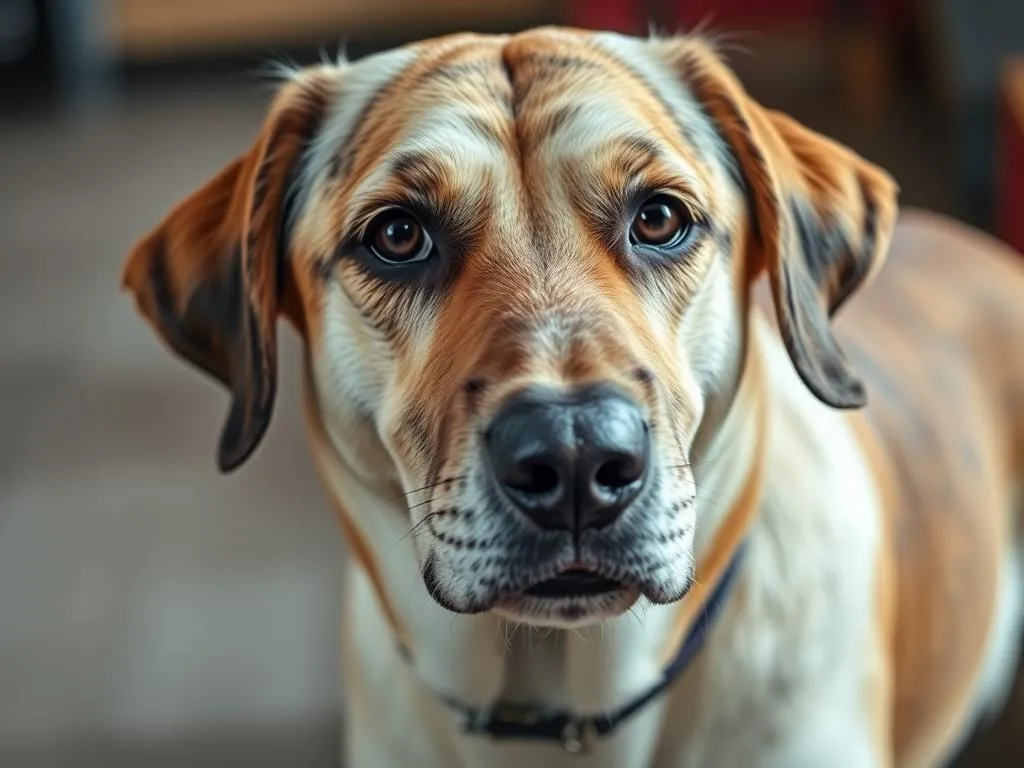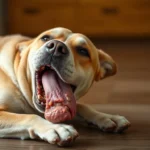
As dogs age, they undergo various physiological changes that can contribute to noticeable odors. Understanding why old dogs smell is essential for pet owners aiming to maintain their furry companions’ health and comfort. This article delves into the factors contributing to these odors, health issues associated with aging, and practical steps to manage and prevent unpleasant smells in older dogs.
Understanding Dog Aging
The Aging Process in Dogs
Like humans, dogs experience a natural aging process that affects their bodies. As dogs grow older, they may face a decline in their physical and mental health. Common changes include reduced mobility, changes in appetite, and alterations in behavior. Physiologically, older dogs often experience thinning skin, graying fur, and reduced elasticity in their coats. These factors can contribute to changes in odor as their bodies metabolize differently and produce less oil.
In addition to physical changes, older dogs are more susceptible to various health issues, including arthritis, heart disease, and diabetes. These conditions can not only affect their quality of life but also lead to distinct odors.
The Importance of Regular Veterinary Care
Regular veterinary visits are crucial for senior dogs. Routine check-ups allow veterinarians to monitor your dog’s health and catch potential issues early. During these visits, veterinarians can recommend necessary vaccinations, health screenings, and dietary changes tailored to your dog’s age and health status.
Common Health Issues in Senior Dogs
Older dogs often face specific health challenges that can lead to unpleasant odors:
- Dental disease: Periodontal disease is common in older dogs and can cause bad breath and odors.
- Skin infections: Older dogs may develop skin conditions like dermatitis, leading to a foul smell.
- Ear infections: These can create unpleasant odors and require prompt attention.
- Incontinence: Many senior dogs may struggle with urinary or fecal incontinence, which can lead to hygiene issues and odors.
Regular veterinary care can help manage these conditions and significantly reduce the odors associated with them.
Causes of Odor in Old Dogs
Natural Changes in the Body
As dogs age, natural changes occur in their skin and coat. The production of sebum (natural oils) may decrease, leading to dry skin and a dull coat. This can create an environment for bacteria and yeast to thrive, contributing to unpleasant smells. Additionally, older dogs may experience changes in body chemistry and metabolism that can also influence their odor.
Health Issues Leading to Odors
Dental Problems
One of the most significant contributors to odor in older dogs is dental problems. Periodontal disease affects many senior dogs and can lead to bad breath, which is often a sign of infection or decay. Regular dental cleanings and at-home dental care can help mitigate these odors.
Skin Conditions
Older dogs are prone to various skin conditions that can lead to noticeable odors. Conditions like dermatitis, bacterial infections, and yeast infections can produce unpleasant smells. Regular grooming and veterinary care can help detect and treat these issues before they become severe.
Ear Infections
Ear infections are another common issue in older dogs that can result in foul odors. Dogs with floppy ears or those that swim frequently are at a higher risk. Symptoms of ear infections include shaking of the head, scratching at the ears, and a strong odor coming from the ear canal. Prompt veterinary attention is essential for effective treatment.
Incontinence and Hygiene Issues
Incontinence is a prevalent issue among senior dogs, leading to hygiene issues and odor. Both urinary and fecal incontinence can cause significant discomfort for dogs and embarrassment for their owners. Maintaining good hygiene through regular bathing and, if necessary, the use of dog diapers can help manage these odors.
Dietary Factors
Diet plays a crucial role in a dog’s overall health and can significantly impact body odor. Dietary changes in older dogs may lead to changes in digestion and metabolism, resulting in increased odors. Additionally, food allergies and sensitivities can cause skin irritations or gastrointestinal upset, contributing to unpleasant smells. Consulting with a veterinarian about the best diet for your aging dog can help minimize these issues.
Identifying the Source of the Smell
Observational Techniques
Pet owners can perform basic health checks at home to identify potential sources of odor. Observing your dog for changes in behavior, appetite, and grooming habits can provide valuable insights. Pay attention to the following signs:
- Unusual scratching or licking
- Changes in breath or oral health
- Skin irritations or unusual odors from the ears
- Changes in bathroom habits
When to Consult a Veterinarian
If you notice persistent odors or any concerning behaviors, it’s essential to consult a veterinarian. Early diagnosis can prevent more serious health issues and improve your dog’s quality of life. A veterinarian can perform a thorough examination and recommend appropriate treatments or lifestyle changes to address the odors.
Maintaining Good Hygiene for Older Dogs
Regular Grooming Practices
Grooming is vital in maintaining your dog’s hygiene and reducing odors. Older dogs may require more frequent grooming due to changes in their coat and skin conditions. Here are some tips for effective grooming:
-
Bathing tips: Use a mild, veterinarian-approved dog shampoo to avoid irritating your dog’s skin. Bathe your dog as needed, typically every few weeks, or more frequently if they have a skin condition. Ensure thorough rinsing to remove all shampoo residue.
-
Brushing techniques: Regular brushing helps remove dirt, dead hair, and dander, promoting a healthier coat. Choose a brush suitable for your dog’s coat type and brush at least once a week.
Dental Care
Maintaining oral hygiene is crucial for preventing bad breath and dental disease. Here are some best practices for older dogs:
-
Brush your dog’s teeth regularly using a toothbrush and toothpaste specifically designed for dogs. Aim for at least two to three times a week.
-
Provide dental chews or treats designed to promote oral health. These can help reduce plaque buildup and freshen breath.
-
Schedule regular dental cleanings with your veterinarian to address any existing dental issues.
Ear and Skin Care
Proper care of your dog’s ears and skin can significantly reduce odors:
-
How to clean ears safely: Use a veterinarian-recommended ear cleaner to gently wipe your dog’s ears. Avoid using cotton swabs, as they can push debris further into the ear canal.
-
Skin care routines: Monitor your dog’s skin for signs of irritation, redness, or infection. Regular baths, along with moisturizing products if necessary, can help maintain healthy skin.
Dietary Considerations
Choosing the Right Food
As dogs age, their nutritional needs change. Selecting the right food is essential for maintaining overall health and minimizing odors. Look for high-quality ingredients and formulas specifically designed for senior dogs. These diets often contain balanced nutrients to support aging bodies and may help reduce odors associated with poor digestion.
Supplements for Health
In addition to a suitable diet, certain supplements can benefit older dogs. Omega-3 fatty acids, probiotics, and antioxidants can promote overall health and may help reduce odors associated with aging. Always consult your veterinarian before adding supplements to your dog’s diet, as they can provide personalized recommendations based on your dog’s specific health needs.
Preventive Measures
Regular Veterinary Visits
Ongoing veterinary assessments are vital for managing the health of older dogs. Regular check-ups allow for early detection of health issues and adjustments to care as needed. Vaccination schedules should be maintained, as older dogs may be more susceptible to certain diseases.
Lifestyle Adjustments
Maintaining an active lifestyle is important for senior dogs. Regular exercise helps keep them physically fit and can alleviate some health issues. Additionally, mental stimulation through puzzle toys and interactive games can enhance their overall well-being, reducing stress and potential odor issues related to anxiety.
Conclusion
Understanding why old dogs smell is crucial for maintaining their health and comfort. By being proactive in recognizing the causes of odors, ensuring regular veterinary care, and maintaining good hygiene practices, pet owners can significantly improve their dogs’ quality of life. Regular grooming, dental care, and a balanced diet tailored to senior dogs are essential steps in managing odors and promoting overall health. Taking these actions not only enhances the well-being of older dogs but also strengthens the bond between pets and their owners.









